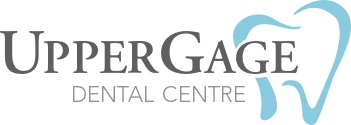An oral hygiene routine isn’t quite complete without some flossing. And if you don’t want to be reminded of it at each cleaning, it’s best to make it a habit. However, flossing is about more than impressing your hygienist.
Brushing alone cannot reach all the areas between your teeth and gums. Food particles and bacteria get trapped in these areas, leading to tooth decay and cavities which may require fillings. Flossing helps eliminate these particles, leaving your teeth and gums cleaner and supporting your oral health.
Flossing Fights Tooth Decay
Flossing is simple, but it’s highly effective at removing plaque. Your toothbrush can’t reach the tight spaces between your teeth, but flossing picks up the slack, pulling out that plaque bacteria.
And getting that plaque out early is essential! If plaque is allowed to sit on your teeth, it has a chance to harden into tartar, a hard plaque that has to be removed by your dentist. Left untreated, plaque can result in tiny holes in your enamel called cavities.
A good rule of thumb is to floss once a day. If you’re prone to getting food stuck in your teeth, it can also be helpful to floss after eating. This is important as food debris is an excellent breeding ground for bacteria. Bacteria love to feast on food residue, and as they break down the food, they release acids that attack tooth enamel, leading to dental cavities.
Flossing Reduces Bad Breath
Speaking of getting food stuck in your teeth, those tiny pieces of food can cause bad breath as they begin to decay and release an unpleasant odour. So that means when flossing removes these food particles, it helps reduce bacteria growth and keeps your breath fresh and clean. It’s a win-win!
Flossing Maintains Gum Health
Proper flossing also helps maintain the health of gums. When flossing is neglected, bacteria can build up in the gum line. Over time, this can lead to gingivitis, a precursor to periodontitis, a severe gum disease.
Signs of gum disease include:
- Bleeding gums when brushing or flossing
- The colour of your gums change
- Your gums are red along the gumline
- Puffy, sore, or shiny gums
- Lingering bad breath
- Persistent metal taste
- Sensitive teeth
If you spot these signs, we recommend seeing your dentist as soon as possible, as gum disease could lead to tooth loss.
Gum disease can sound scary, but it can almost always be prevented. Simply keep up with your oral hygiene and visit your dentist regularly for cleanings and check-ups.
Flossing Is Cost Effective
Preventative dental care is always a wise investment. If you practice good oral hygiene, you may be able to save yourself a considerable amount of money in dental bills down the line. Flossing is a simple and affordable prevention tool that can help you maintain your oral health.
How To Floss Your Teeth
Flossing can sometimes feel like something you can easily skip, but it’s far from it! Plaque can turn into tartar in as little as 24 hours, at which point you’ll need a dentist’s help.
You can find moments to floss in your day that make it feel less like a chore. Try flossing while watching tv or waiting for your morning coffee to be done.
When you floss, follow these steps:
- Measure out a length of floss equal to about the distance between your hand and shoulder.
- Wrap the floss around your index and middle fingers. Leave about 2 inches between your fingers, but you can decide if you prefer it longer or shorter.
- Slide the floss between your teeth, making it into a “C” shape as you move it along the base of your tooth. Wipe along the teeth and under the gumline to remove lingering plaque and debris.
- Repeat this process with each tooth. Ensure you clean both sides and reach back for those molars. The reason you want such a long strand of floss is so you can use a different section as it wears down.
- Once you’re done flossing, and you’ve tossed the string, follow up with a thorough brushing to work away the last of the plaque still on your teeth.
Don’t Underestimate the Power of Flossing
Flossing may seem like a tedious task, but it’s an essential part of your oral hygiene routine. By removing food particles, plaque, and bacteria, flossing not only helps prevent cavities and gum disease but also promotes overall oral health.
Upper Gage Dental Centre recommends you dedicate just a few extra minutes to daily flossing. Our experienced team is here to support your family’s dental goal, but the best first step starts at home.
Keep flossing, brushing, and book an appointment with us when it’s time for a check-up!



